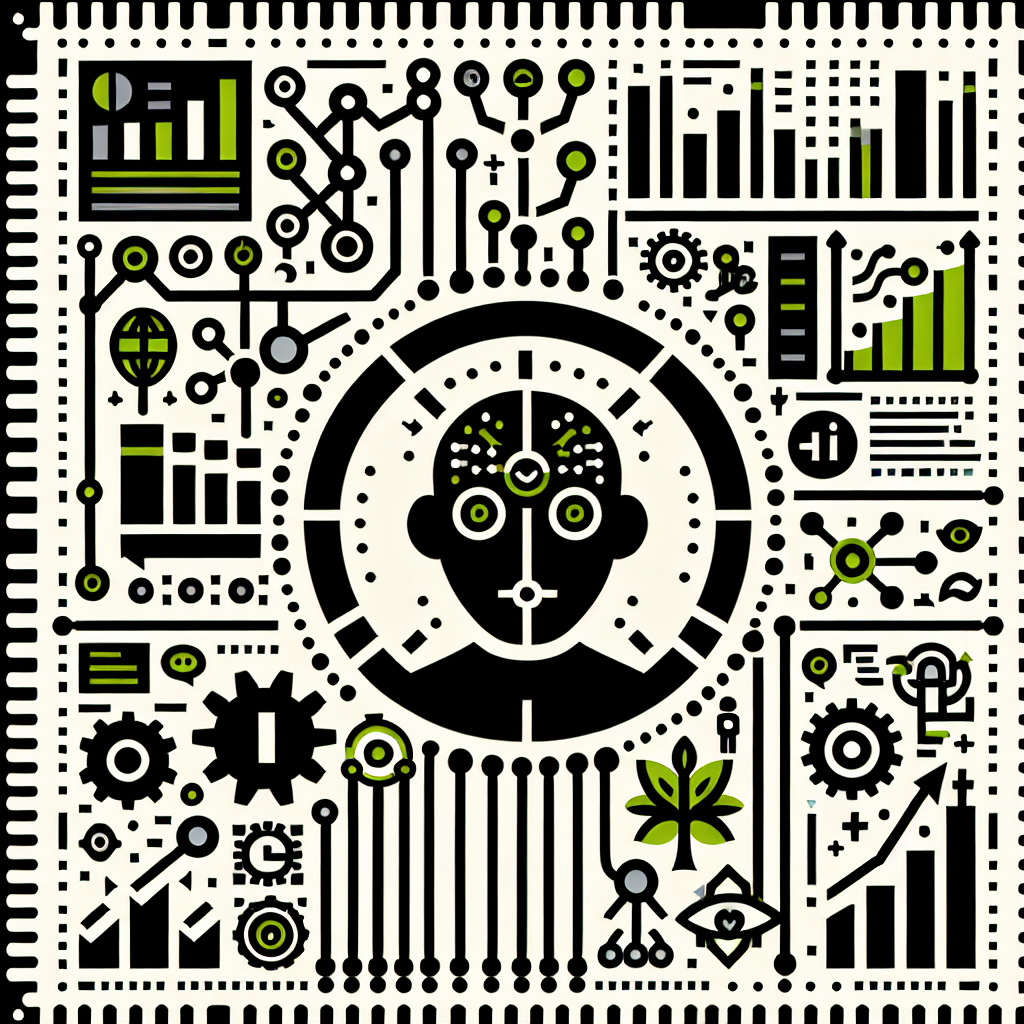Understanding the Landscape: Influencer Analytics and AI
The Role of AI in Transforming Influencer Analytics
Artificial intelligence plays a vital part in modernizing influencer analytics. Not only does AI provide essential insights for influencers and brands, but it also paves the way for data-driven decisions and smart targeting. AI algorithms can analyze vast numbers of social media posts, comments, likes, shares, and followers in just a matter of seconds, extracting valuable patterns and insights.
AI’s machine learning aspects, in particular, are highly beneficial, constantly growing and evolving to accommodate the rapidly changing social media sphere. They adjust to trends, preferences, and nuanced engagement metrics to provide a real-time analysis of an influencer’s performance.
Influencer Analytics: An Overview
Influencer analytics offer a way to measure the effectiveness of influencer marketing campaigns. It encompasses data collection, monitoring, and analysis of an influencer’s audience, engagement, and performance metrics.
These analytics provide a clear overview of an influencer’s performance, helping brands make informed decisions about potential partnerships. Not matter the size of the influencer – from micro to mega – having robust analytics is crucial for success in influencer marketing.
The Impact of AI on Influencer Marketing Strategies
AI has drastically altered influencer marketing strategies. With the influx of data available, understanding and interpreting this data has become critical. Thanks to AI, brands can quickly identify ideal influencers, aligning with brand values while reaching the targeted audience.
Furthermore, machine learning algorithms have the potential to predict future influencer performance based on past data. This predictive analysis can greatly reduce the risk associated with influencer marketing, ensuring a greater return on investment (ROI) for brands.
How AI is Transforming Influencer Analytics: A Deep Dive
Transforming Influencer Analytics with AI: The Mechanism Explained
AI holds the power to transform influencer analytics by automating the data collection and analysis process. It can evaluate an influencer’s audience demographics, follower counts, engagement rates, and content effectiveness to identify algorithms and provide tailored campaign strategies.
AI’s deep learning capabilities can even analyze an influencer’s content, including images and videos. This analysis can reveal insights about the content’s quality, type, and the audience’s reaction to it, providing a multi-dimensional understanding of an influencer’s impact and reach.
Real-World Examples of AI Transforming Influencer Analytics
The real-world application of AI in influencer analytics is seen in various sectors, primarily through increased conversion rates and improved audience targeting. For example, companies like Crowdbabble and HypeAuditor use AI to provide a comprehensive influencer analytics platform.
These platforms deliver deep analytical reports about influencers, including audience demographics, engagement metrics, and content quality. The AI-driven analytics provided by these platforms help brands streamline their influencer marketing efforts, saving both time and resources.
Peak Inside: AI Tools for Influencer Analytics
AI tools like Buzzoole, Traackr, and BuzzSumo offer top-of-the-line services for influencers and brands alike. They offer insights about audience demographics, engagement, content quality, and more.
These tools employ advanced machine learning technology to provide a comprehensive suite of influencer analytics, helping users make informed decisions about their influencer marketing strategies.
Predictions: Future Trends in AI and Influencer Analytics
As we look at future trends, AI will continue to revolutionize influencer analytics. We can expect more personalized and predictive analytics, allowing for more efficient and effective influencer campaigns.
Furthermore, AI will facilitate more actionable influencer metrics, making it easier to measure the success and ROI of influencer campaigns. An interesting trend to watch will be AI’s integration with other emerging technologies, like augmented reality (AR) and virtual reality (VR), leading to a new dimension in influencer analytics.
Practical Implications of Transforming Influencer Analytics with AI
Advantages of Transforming Influencer Analytics with AI for Brands
AI presents significant advantages for brands in influencer marketing. These include access to real-time insights, the ability to segment audience demographics accurately, and identify the best influencers for their campaigns.
AI can also predict future trends and tailor content to precisely target the desired audience, providing a higher ROI. Additionally, by automating data collection and analysis, brands can save considerable time and resources on manual analysis.
Challenges and Limitations While Implementing AI in Influencer Analytics
While AI offers numerous benefits, there are challenges and limitations to its implementation. One major concern is data privacy and security. Brands must ensure they’re complying with regulations like the General Data Protection Regulation (GDPR) and the California Consumer Privacy Act (CCPA).
Another challenge is the need for substantial initial investment in AI technologies, which may not be feasible for all brands. However, the long-term benefits and cost efficiencies usually offset the initial expense.
Measuring the Success: ROI of Transforming Influencer Analytics With AI
Measuring the ROI of AI in influencer analytics requires tracking metrics that not only assess the influencer’s performance but also evaluate the campaign’s overall success. Some key metrics to consider are engagement rate, click-through rate, conversion rate, and overall brand visibility.
It’s important to continually monitor these metrics to efficiently use your AI tools and maximize the ROI of your influencer campaigns. Brands should also consider qualitative factors, such as audience sentiment and brand loyalty, which contribute to the overall success of a campaign.
A Step-by-step Guide: Transforming Your Influencer Analytics with AI
Implementing AI in your influencer analytics is a multi-step process. First, identify your marketing goals and the metrics you’ll use to measure success. Then, select the right AI tools for your needs.
Train the AI system to interpret and analyse your data, observing how it enhanced your approach to potential influencer partnerships, your understanding of your target audience, and your overall marketing strategy. Monitor your progress constantly and make adjustments as necessary to fully leverage the power of AI in influencer analytics.
Key Takeaways
- The Role of AI in Influencer Analytics: AI revolutionizes influencer analytics by streamlining data processes, providing real-time insights, and predicting future trends. This can not only increase efficiency but also allow for more strategic decision-making.
- Influencer Analytics: This encompasses the process of gathering and analyzing data from influencer marketing campaigns. It involves metrics such as influencer engagement rates, audience demographics, and the overall effectiveness of campaigns.
- Impact of AI on Influencer Strategies: AI can help marketers better target their influencer campaigns, create personalized content, and optimize their marketing strategies for better results.
- Mechanism of AI Transformation: AI integrates machine learning and data analytics to offer more sophisticated and precise influencer analytics, leading to better insights and strategies.
- Examples of AI and Influencer Analytics: Various brands have experienced significant success by integrating AI into their influencer analytics, leading to improved targeting, content optimization, and campaign efficiency.
- AI Tools for Influencer Analytics: There are multiple AI tools available that can help businesses transform their influencer analytics, including predictive analytics tools, AI-powered influencer marketing platforms, and more.
- Future Trends: AI is expected to continue influencing influencer analytics, with emerging trends such as predictive influencer marketing and AI-powered influencer selection.
- Implications of AI Transformation: While AI offers several advantages for influencer analytics, such as better insights and strategic decision-making, it also presents challenges including implementation difficulties and complexity of AI tools.
FAQs
Q1: How can AI transform influencer analytics?
A1: AI can enhance influencer analytics by streamlining the data processing, allowing real-time insights, predicting future trends, and facilitating strategic decision-making.
Q2: What is influencer analytics?
A2: Influencer analytics involves gathering and analyzing data from influencer marketing campaigns, including engagement rates, audience demographics, and campaign effectiveness.
Q3: How does AI impact influencer marketing strategies?
A3: AI can optimize influencer marketing strategies by improving targeting, creating personalized content, and optimizing marketing efforts for more effective campaigns.
Q4: What is the mechanism behind the transformation of influencer analytics through AI?
A4: AI uses machine learning and data analytics to provide more precise and sophisticated influencer analytics, leading to enhanced insights and marketing strategies.
Q5: Can you give some examples of how AI is transforming influencer analytics?
A5: Many brands have enjoyed success by leveraging AI in their influencer analytics; it has improved campaign targeting, content optimization, and overall efficiency.
Q6: What are some tools available for transforming influencer analytics with AI?
A6: There are several AI tools available, including predictive analytics tools and AI-powered influencer marketing platforms that can help in transforming influencer analytics.
Q7: What are some future trends in AI and influencer analytics?
A7: Some emerging trends include predictive influencer marketing and AI-powered influencer selection, indicating a strong future for AI in influencer analytics.
Q8: What are the advantages/disadvantages of using AI in influencer analytics?
A8: AI offers numerous advantages such as refined insights and strategic decision-making. However, it also presents challenges like implementation difficulties and the complexity of AI tools.
Q9: How is the success of AI-integrated influencer analytics measured?
A9: The success can be measured in terms of ROI -enhanced campaign performance, improved targeting, and the overall efficiency of influencer marketing campaigns.
Q10: What are some steps to transform your influencer analytics with AI?
A10: Steps include determining your marketing goals, selecting appropriate AI tools, implementing the tools, monitoring the results, and refining your strategy based on insights.



